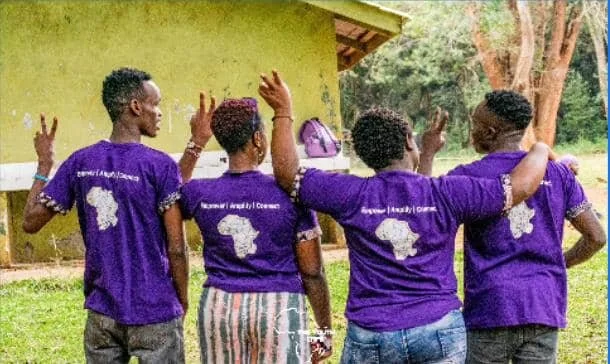International Day Of Peace Article Series
INTRODUCTION
“…a successful peace building process must be a transformative process and create space for a wider set of actors- including, but not limited to, representations of women, young people, victims and marginalized communities, community and religious leaders, civil society actors, and refugees and internally displaced persons-to participate in public decision-making on all aspects of post-conflict governance and recovery.
”
The existence of conflicts and wars around the world has for the longest time been viewed as inevitable. From ‘small scale’ conflicts within one nation; the Cuban Revolution (1953-1958), the Biafra War in Nigeria (1967-1970), Yugoslav Wars (1991-2001), Rwandan Genocide (1994) to large scale ones involving a number nations such as the World Wars. This attitude of inevitability towards the emergence of war and conflict informed the development of the Laws of War by the United Nations in an effort to mitigate the effects of warfare by regulating the conduct of warring parties.
However, the attitude towards war by the international community is shifting towards one of radical peace, where the aim is to eradicate war and build a conflict-free world. The declaration of the United Nations General Assembly of the International Day of Peace in 1981 is reflective of this turnaround. This day is marked every 21st September and is devoted to world peace and the absence of war and violence. It is a day designated for observing and solidifying the ideals of peace starting with non-violence and cease-fire.
This year’s commemoration of Peace Day is special as the universe is grappling with a common enemy: the COVID-19 pandemic. The pandemic has caused a switch in the manner in which the globe operates as it has shown the world that we are not really not each other’s enemies, and we must unite to battle against the common enemy that is the global pandemic. Following the outbreak, the UN Secretary General, Antonio Guterres called for an immediate global cease-fire in March to channel the world’s resources to fighting the pandemic. He urged nations to stop the sickness of war and fight the disease that is ravaging the world. The theme for this year’s Peace Day is ‘Shaping Peace Together’ and the UN invited the world to spread compassion, kindness and hope in the face of the COVID-19 pandemic, and stand together with them against attempts to use the virus to promote discrimination and hatred.
The world’s path towards the achievement of global peace is exemplified through the Sustainable Development Goals (SDGs); designed by the United Nations to be a blueprint to achieve a better and more sustainable future for the world. The 16th Goal is on Peace, Justice, and Strong Institutions. This goal aims to promote peaceful and inclusive societies for sustainable development, provide access to justice for all and build effective, accountable, and inclusive institutions at all levels. Conflict and violence are among the obstacles holding back the attainment of the 2030 Agenda for Sustainable Development. The SDGs serve to guide investments in human capital development, poverty eradication, inequality reduction, and boosting inclusion thus helping reduce the basis of conflicts. Other notable strides made by the UN in an effort to promote world peace include the designation of the year 2000 as the International Year for the Culture of Peace, the proclamation of the decade 2001-2010 as the International Decade for a Culture of Peace and Non-Violence for the Children of the World and the International Day of Non-violence in 2007, among others.
The most current resounding message of the United Nations Security Council is inclusion in peace building. Through the passing of the United Nations Security Council Resolution 1325(2000) on Women, Peace and Security and 2250(2015) on Youth Peace and Security. In addition, the African Union theme for this 2020 is ‘Silencing the Guns’, a campaign aimed to achieve a conflict-free Africa, prevent genocide, make peace and a reality of all and rid the continent of wars, violent conflicts, human rights violations and humanitarian disasters.
It is against this backdrop that The Youth Café, in commemoration of the International Day of Peace, is publishing a series of articles. First, in light of our recent membership in the U.S. Youth, Peace and Security Coalition, the first piece will be on the rationale for The Youth Café joining the Coalition. The second piece will cover the significance of youth inclusion in the agenda towards ‘Silencing the guns’ in Africa towards the goal of a conflict-free Africa. The third one explores the role of youth-led gender activism in Africa in the realization of the UNSCR 1325 on Women, Peace, and Security and the final one will look into the impact of COVID-19 on youth, violent-extremist recruitment in the age of digital media.
To explore more resources, visit our Resources Page.



